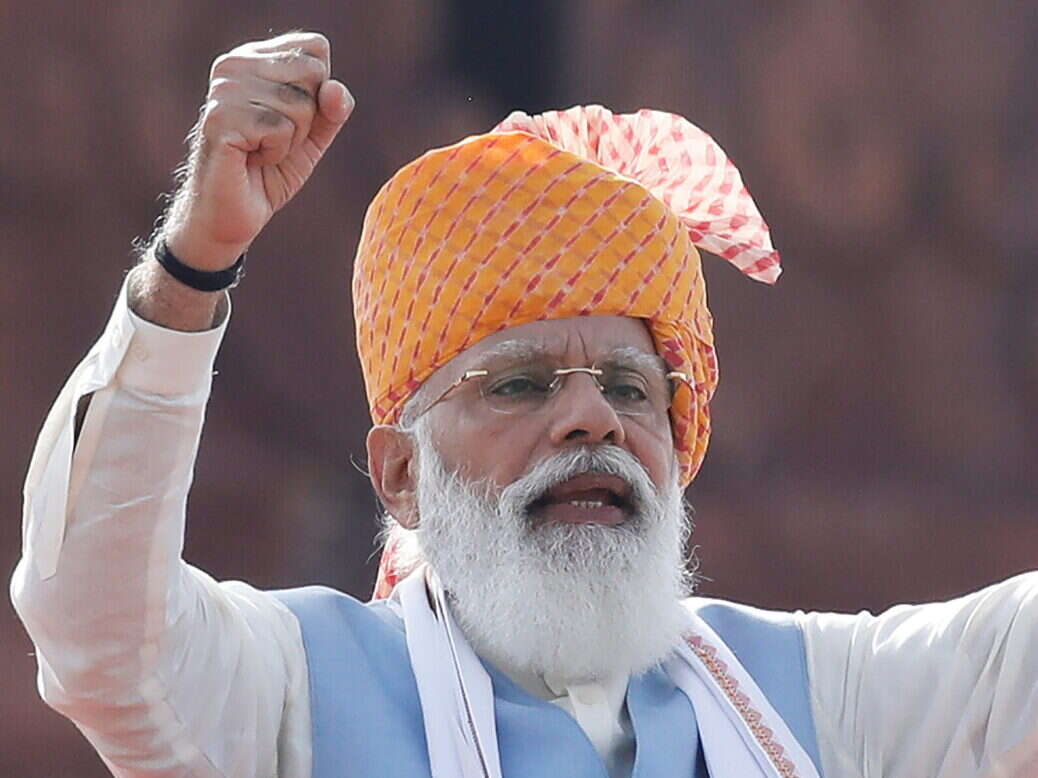
An investigative blogger from Northern Ireland has criticised the Indian government’s “censorial approach” to journalists after police made a third threat against his blog.
Dean Sterling Jones, who has run the Shooting the Messenger blog since 2016, has been made aware of a take-down order sent by Cyber Police in Mumbai against an article from 2018 on which he re-published a photoshopped image originally on Buzzfeed News (but since deleted).
Buzzfeed in 2018 deleted the image of Prime Minister Narendra Modi in a topless embrace with his fellow politician Rajnath Singh after receiving a defamation complaint.
The latest threat, sent to Google and domain service provider MarkMonitor, purported to be because the blog embedded through Scribd the legal letter, which included the police department seal and the signature of a senior inspector. It said the images were being misused by a “fraudster”.
However, Sterling Jones believes the photoshopped image of Modi is itself the real reason for the threats, similar versions of which have come before.
In 2019 Sterling Jones’ web host, WordPress.com parent company Automattic, forwarded to him two legal threats it had received over the Modi image. The same police force tried to force the company to hand over his passwords and other personal information, saying it must do so to “avoid law and order problems”.
“It is found that the suspects are posting such exclamatory and defamatory
morphed/vulgar photos with the purpose to create unrest…” the letter said.
However, Automattic told Sterling Jones it would not hand over his information to police as the request did not comply with its legal requirements.
Sterling Jones, who has freelanced for the Guardian, BuzzFeed News, Foreign Policy and the Daily Beast, told Press Gazette: “As I see it, these threats are another example of the Indian government’s censorial approach to criticism, and make Modi look like a thin-skinned authoritarian.
“They also suggest that the Mumbai police believe they can harass foreign critics and journalists with impunity, in a similar though less severe manner to how they treat Modi critics within their own country.”
He said it was “surreal, but it’s not unusual” to be receiving such threats.
“Bloggers and freelance journalists are particularly vulnerable to this sort of attack – and worse – as they don’t often have the means to fight back,” he said.
“I’m fortunate I don’t live and work in India, where the punishment for criticism of Modi online can include jail time.”
Sterling Jones said he had been in touch with the head of the Mumbai cyber police department who “insists” that the most recent letter was an “attempt to prevent identity theft using his/her signature and the department’s seal/logo”.
“I asked for an explanation as to why they had repeatedly targeted the same content on my site, using different methods, but they were dismissive and refused to answer.” Press Gazette has contacted the force for further comment.
India is ranked 142nd of 180 countries in Reporters Without Borders’ Press Freedom Index. Criminal prosecutions are “often used to gag journalists critical of the authorities”, the group said.
Press Gazette’s own Media Freedom Health Check and analysis gave India a red rating.
Other similar take-down orders have previously been made by India’s Cyber Police. In 2017 the same force filed a defamation case against a group of comedians over another photoshopped image of Modi.
Picture: Reuters/Adnan Abidi
Email pged@pressgazette.co.uk to point out mistakes, provide story tips or send in a letter for publication on our "Letters Page" blog
